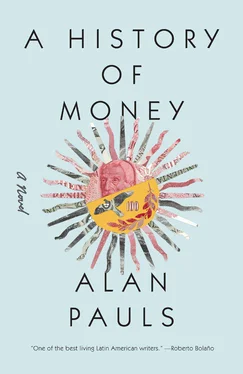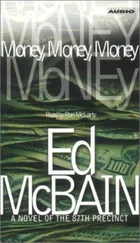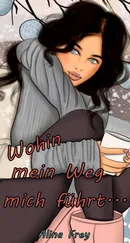The last he hears of his mother — news she tells him herself, when she calls to ask for cash for her taxi, and which he files away next to the image of the button on the checked shirt, the cologne, and the mole (false alarm: it was benign) — is that she goes to visit him in the hospital — angina: nothing his Uruguayan even temper can’t negotiate without struggle or complaint, and with a casual, flea-market kind of grace — and that there, under the hospital’s high surveillance, the patient of the three Ws ends up accepting the clandestine drink he’s always rejected on his mother’s doorstep. After that, there’s no news for a while. He realizes this one afternoon when he’s at home alone and the silence seems to solidify around him. He sees then that those imperious requests, those early-morning phone calls that so exasperated him but that he ended up putting up with, were the only contact he had had with his mother for a long time. And now that he hasn’t received one for days, a strange terror floods him. He’s scared to call her. Scared that he’ll call her and she won’t answer; scared of going to her apartment, ringing the buzzer, and getting no response; scared of convincing the super to open the door and finding her in bed with the remote control in her hand, or stretched out on the black tiles in the bathroom, struck down while plugging in the hairdryer. In truth, he’s scared that finding her like this might be his mother’s last wish for him. It’s not exactly a suicide scene that he’s imagining: given her sense of the ridiculous, she could never have done something so deliberate, so solemn and laborious, without laughing and ruining it halfway through. No: what he fears is a chance, accidental death that has nevertheless been imagined so many times that the spectacle of its consummation couldn’t, now, exist without him, its recipient and the only reason she’s imagined it so many times. And, of course, he wonders how she’s getting by without asking him for cash. He begins to run through all the possibilities that occur to him, rapidly, like a slide show — his mother as a beggar, his mother as a thief, his mother filling out a translation with long, pointless periphrases to increase the number of words she’ll be paid for — but they’re immediately eclipsed by another thought: what he will do with the money he doesn’t give to her. What will he use that trickle of bills for now? Not that it even amounts to much. It was a drain, yes, but more because it was so relentless, so rhythmical, than because of the quantities involved. And yet even so, that modest but unforeseen surplus makes him feel affluent and magnanimous, fills him with new energy and an obvious, textbook philanthropic urge, the type that’s born of money itself rather than any particular sensibility, will, or ethic — of money and the special logic it obeys of its own accord once it reaches certain thresholds of abundance, which he so reviles in rock stars, successful artists, heads of technology corporations, and other contemporary magnates. Yes, he could be a benefactor. Why not? He could inject some cash into a factory and turn its structure upside down. And then money would finally replace revolution.
But where to start? If only they were still producing that beautiful Trotskyist monthly, all black type on red pages, that his friend’s older brother lobbies him to contribute to as a teenager, which he supports however he can, siphoning small donations from a monthly allowance that’s already too small to satisfy his basic needs, namely fast food, the cinema, and his first black-tobacco cigarettes. Of course, back then it’s not the money that makes him do it: neither what it means for the Trotskyist monthly’s finances (which are pinned together so precariously that much like his mother — the mother who’s disappeared and is showing no sign of life — they can’t allow themselves any luxuries, certainly not that of any extra costs, and much less that of reducing the contributions of sympathizers like him, no matter how insignificant they are), nor what it means to have money, given that to be precise he has none at all. No, he does it out of terror. (He understands this now, forty years later, once his mother has stepped aside and disappeared from view, emptying a vital space in which long-dormant forces can now wake up and congregate and do battle again, as if his mother’s suffering were ultimately nothing but the latest incarnation of what other people call or called the people. ) Not terror in the sense of the intimidation (always tinged with a certain excitement) worked on him by his friend’s brother and his fellow militants, who are always full of talk of the working class, the bourgeoisie, the party, imperialism, the general strike, permanent revolution — words that he always hears in capitals and visualizes as charging colossuses, a gang of monumental monsters that can circumnavigate the planet in three paces and that reduce the world of girlfriends, football, records, and hanging out in plazas he shares with his friend to a sad, pygmy dimension; he sees the group in action together only once, at a meeting his friend manages to smuggle him into, which, like most Trotskyist gatherings, is spent in interminable smoking of cigarettes, drinking of coffee and maté, and, in the small hours, gin, and above all in “defining the situation,” an art in which there never has been nor will be anything to rival Trotskyism. No, it’s terror in the sense of terror: terror that he’ll be identified, kidnapped, hooded, tortured; terror that he’ll die like a dog, be thrown in the river or blown up, for having donated those centavos to a monthly publication that even he, though he supports it passionately and endorses everything it says, from the first word to the last, or maybe for precisely that reason, closes thirty seconds after he’s opened it, as determinedly and unashamedly as a surgeon closing a chest he’s just sawn open after peering into its rotten insides. When he happily hands that money over every month, it’s so that he can experience this terror in an infinitesimal dose, a fictional dose. What terror will move him to put his hand in his pocket now?
He receives a letter. In fact, it wakes him up (and in this detail alone there’s a hint that his mother might have something to do with it), because the bell rings at eight in the morning and a very young, walleyed mailman who’s even more captive to the forces of sleep than he is and who has a fresh vampire kiss on his carotid artery hands him an envelope on which he recognizes his mother’s handwriting, the handwriting that his mother, unlike every other person in the world who’s ever written anything by hand, has preserved unaltered, in fact it’s even more beautiful and elegant than it was in her youth, when in a handful of firm, even lines that look as though they were drawn with a ruler and don’t show the slightest trace of emotion or doubt she tells his father that she’ll be back at the apartment on Ortega y Gasset at six p.m., and she doesn’t want to find him there when she arrives, neither him nor his things. Inside the envelope is a homemade postcard produced by someone who’s not very skilled at handicrafts, intended to impress more than to trick; they’ve stuck a photo on a piece of card and forgotten to wipe away the extra glue, which has hardened on top of the picture and now seems to be sprouting from it like cysts. It’s a black-and-white photo. In that fervent way that failed artists will pounce on any existing image, especially if it’s printed, to stamp their miserable human mark on it, the same clumsy hand has accentuated the shading and relief with fine, reed-like interlocking lines, so that the whole thing seems to be wrapped in a sort of wire mesh. It’s a Victorian house, one of the mansions found to the north of the city, surrounded by trees and parks, which pride themselves on their longevity or ruminate on their decrepitude with arrogant indifference. It’s falling to pieces, but that doesn’t seem to bother his mother. Her only criticism is that you can’t see the river anymore. And the mosquitoes, which swarm down in rabid gangs at nightfall and surround her — without biting her: one of the privileges of queens in exile — while she sits in the gallery reading the extravagant manuals she takes out of the clinic’s library.
Читать дальше












